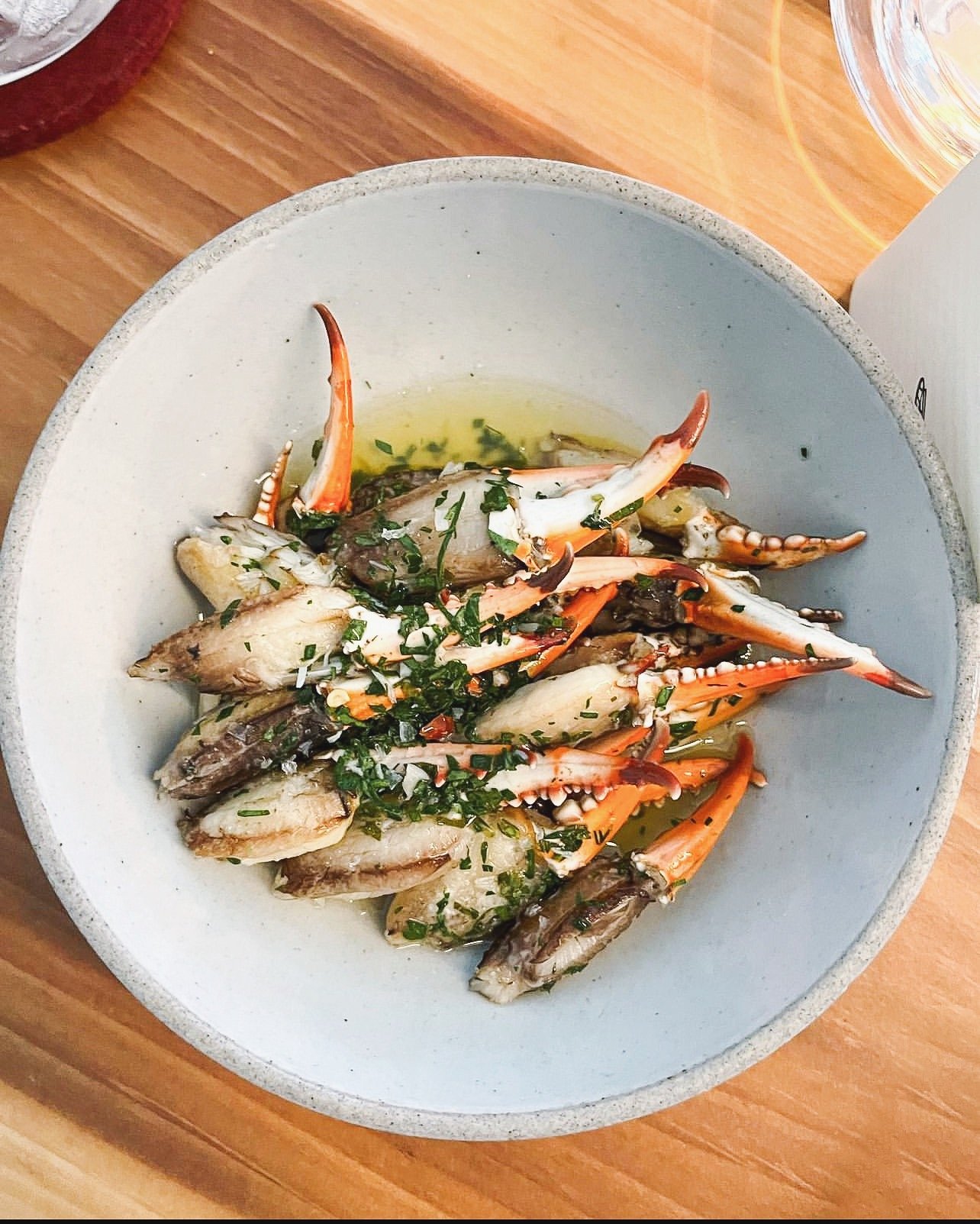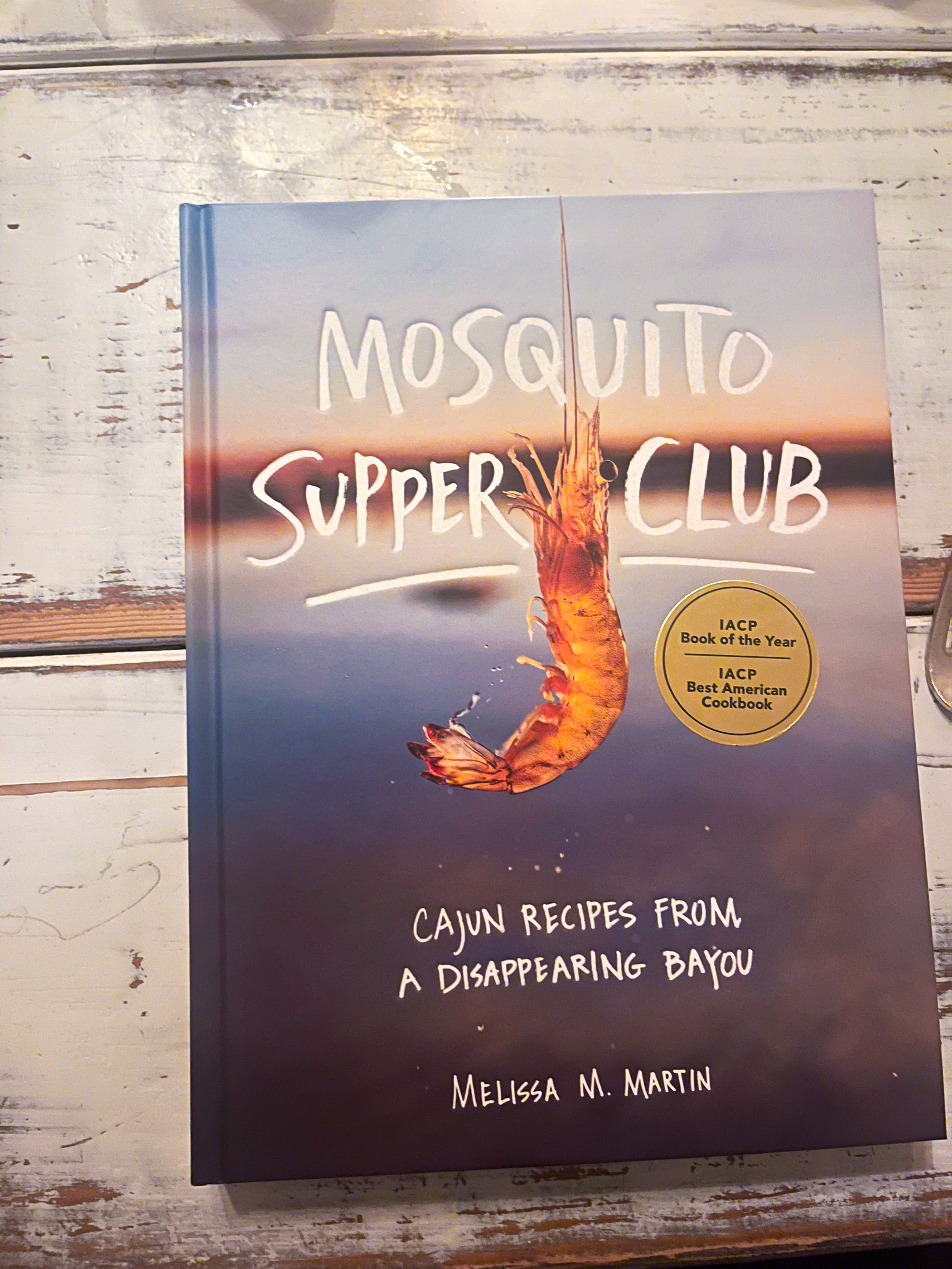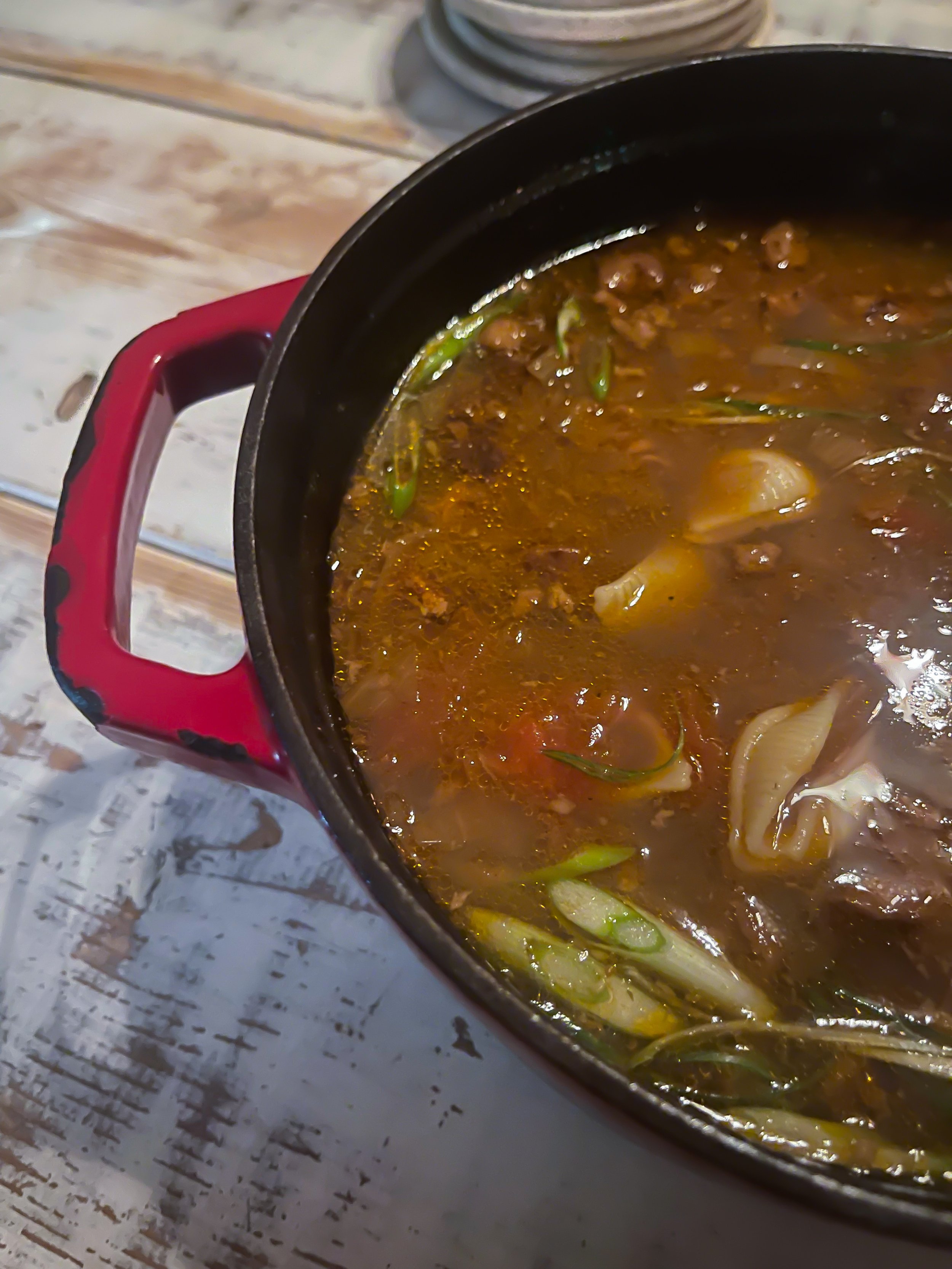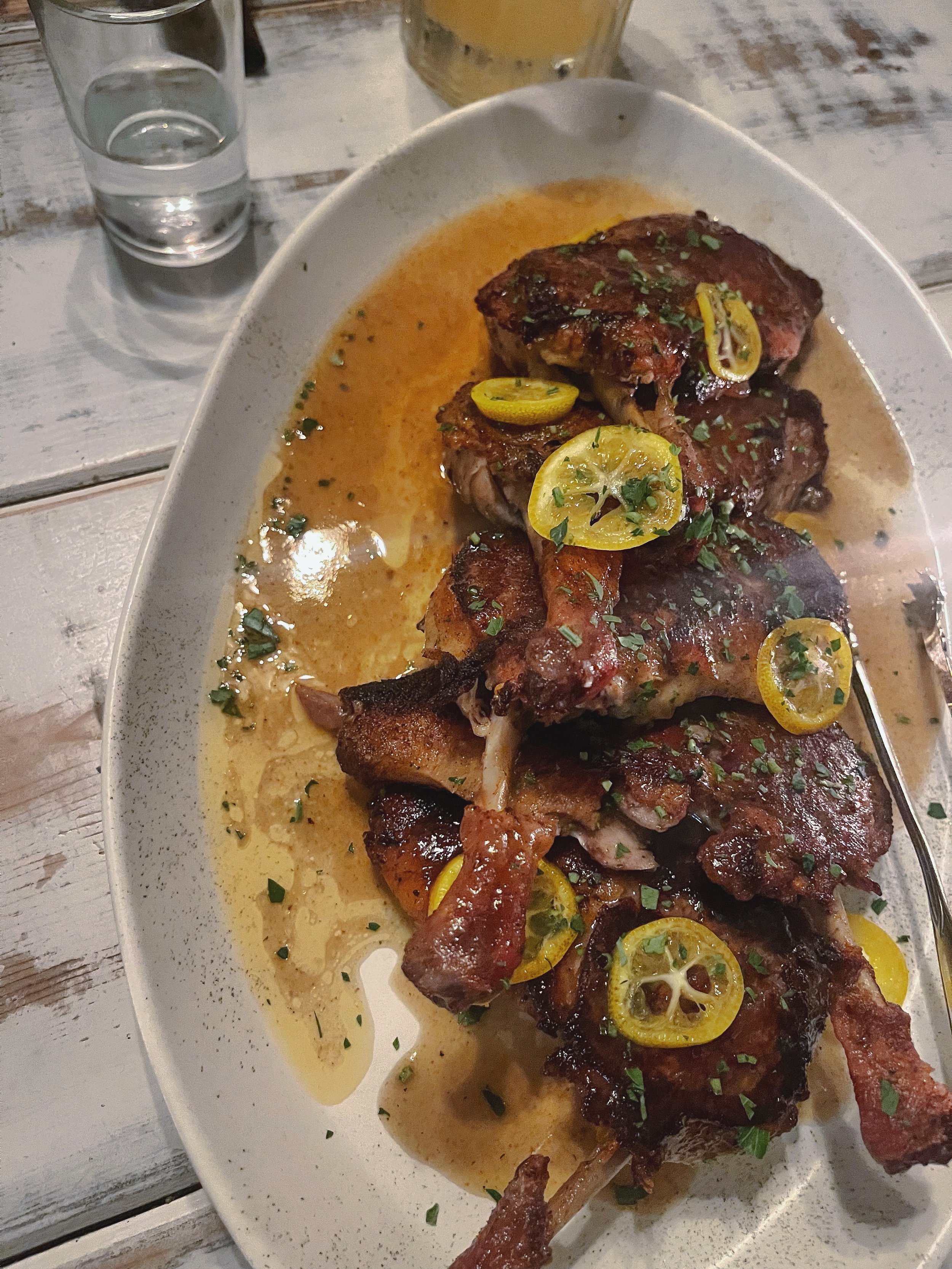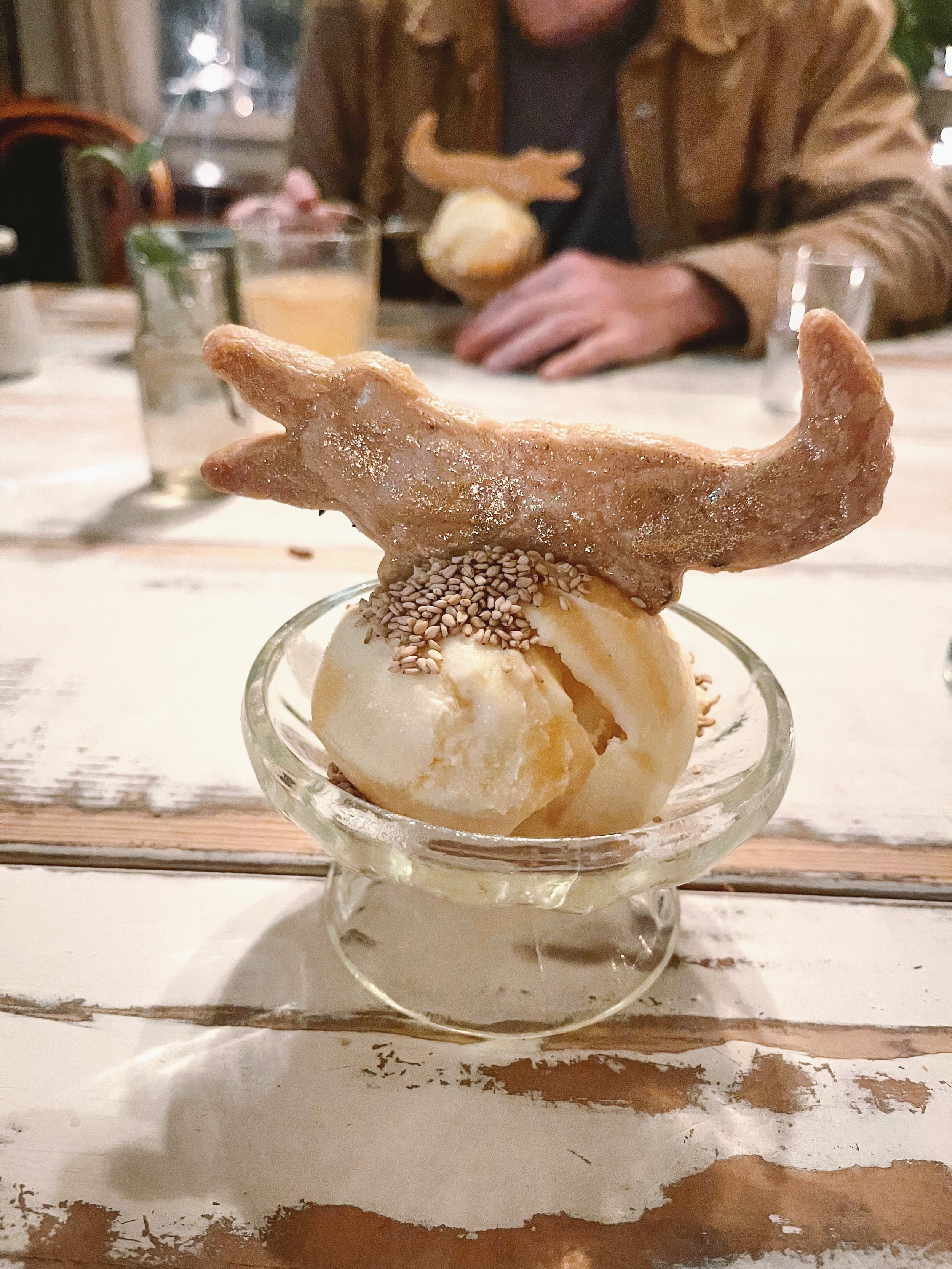Mosquito Supper Club
Dinner from a Disappearing Bayou
Chef Melissa Martin's Mosquito Supper Club is not only a celebration of her Cajun heritage, but also a culinary call to action to educate communal diners about the threats to local Louisiana seafood traditions at the hands of environmental damage.
I left my hotel a few minutes behind schedule, as, at the last minute, I decided to don my rain jacket before departing into the New Orleans evening mist. My cab driver immediately remarked "a little chilly out there, huh?" as I wrestled with my umbrella into the back seat of his sedan. I was able to mumble an "uh huh" while trying to get myself situated.
"Yea, weather's a little colder than I'm used to here. Bit of a cold snap," he muttered, almost to himself, before he met my gaze in the car's rearview mirror. "So, where to?"
I paused, reassuring myself that I articulated the unique name correctly.
"Mosquito Supper Club."
***
Chef Melissa Martin was born and raised in South Louisiana in Terrebonne Parish. Terre bonne means "good earth" in French, and situated as it is on delta soil, the parish is aptly named.
Ms. Martin does not share the culinary school pedigree of many of her New Orleans contemporaries—Emeril Lagassé, or Nina Compton, or Cory Bahr. Rather, Ms. Martin was raised on home-cooked Cajun culinary traditions that incorporated the bounty of the waters that her family fished. In her debut cookbook, which shares the name of her restaurant, Martin recalls how she learned to shuck the oysters her family harvested, pick crabs that swam in nearby bayous, and fold shrimp caught by local fishermen into stews, and gumbos. In fact, over 90% of her restaurant's dishes were passed down to Ms. Martin by her mother.[1]
Ms. Martin's restaurant, Mosquito Supper Club, and her cookbook, bearing the same name, evidence her strong relationship with local fishermen and farmers. She cooks with nearly 100% of her ingredients obtained from the local farmers' market, a testament to her first foray into New Orleans at a young age to begin working at the Crescent City Farmers Market.
I was drawn to visit Mosquito Supper Club, in part, because I had never experienced true Cajun culture or cuisine. Award-winning food journalist, Brett Anderson, of the New York Times, was an early fan of Martin's, and expressed in a 2020 interview the resonance Mosquito Supper Club had with him, a native of Louisiana,
I think Cajun food really hasn’t been mined all that deeply, when you consider how inescapable the term is,” Anderson says. “There’s restaurants all over the place, but they have very little to do with the kind of food you have in Cajun country. There is this opportunity for exploration and preservation that I think [Martin] is seizing.[2]
Not only does Ms. Martin use Mosquito Supper Club as a vehicle for educating diners about the history and flavors of Cajun cooking, but she has used her restaurant and cookbook to passionately advocate for preservation of the South Louisiana wetlands and coastal communities, and by extension, preservation of Cajun culture and tradition, which are in jeopardy due to climate change. The region where Martin grew-up is central to the state’s commercial fishing industry, but has lost land to the effects of climate change, subsidence, and fossil fuel pollution.
In her cookbook, Ms. Martin documents how the effects of climate change has directly impacted the communities and industries with which she is connected. She notes that land loss and flood control projects have altered the salinity of many coastal lakes, and bayous, forcing fishermen to travel farther for a catch, and wiping out whole oyster populations.
“When this land disappears, it takes with it a portion of our nation’s safety and food supply, and a long legacy of culture and traditions,” she writes in her book. “Water is our lifeline and our dark shadow.”
***
Mosquito Supper Club has been in its current location, a restored Victorian cottage, in New Orleans' Uptown neighborhood, since 2016. On arriving, I felt like I was going to a dinner at a friend's house, as a white picket fence, cradling a sign reading "mosquito" was lit up by several strands of lights hanging from the home's balcony.
I proceeded up the porch steps, where I was greeted by a friendly host, who took my coat, and welcomed me inside like an old friend. Once inside, I was met by two large communal tables, each set for 10. It reminded me of my family's home growing up when we'd have extended family over for dinner—we'd align our two largest tables, and pull up whatever chairs we had available.
I've spent years dining alone at restaurants and bars, but the thought of sitting and sharing a meal with strangers still incited a twinge of panic. No matter how old you get, the fear of being the odd one out still exists. However, my fears were immediately placated when I was seated next to a family of four—a couple from Pennsylvania, their daughter who had been living in Louisiana for work, and her fiancé, a recent law school graduate.
Kim, the mother, leaned over excitedly and told me it was her family's fourth trip to Mosquito Supper Club, "we have to come here anytime we're in town visiting," she gushed.
"I have the cookbook!" her husband, Todd, proudly shared. He then leaned in, looking around deviously, "do you know that Solange had her wedding here? Like, Beyonce's sister, Solanage?"
A family that immediately overshared their favorite dining experiences within moments of meeting them, coupled with a father who had educated himself about Beyonce's family lineage and gossip—I knew was right at home.
***
The restaurant, which began in 2014 as a series of Cajun-themed parties and pop-ups, has gradually gained renown for its seafood-focused cuisine and its homespun hospitality. The food is served family style, and introduced not only by its ingredients, but by its story in Ms. Martin's family lineage.
A mid-January menu included the restaurant’s signature sweet potato biscuits, raw Bright Side oysters topped with a dollop of caviar, stone crab claws bathed in lemon butter, and pickled Louisiana shrimp. A large dutch oven was then brought to the table containing Mosquito Supper Club's famed Velma Marie's Oyster Stew—a delicious blend of oysters, their liquor, salt pork, fish stock, and tomatoes. Guests ladled one another bowls of the briny goodness, and passed around fresh baked sourdough to sop up the lingering broth. Our main course was a perfectly seared duck confit, and served alongside local cabbage rolled with lima beans, and bathed in tomato sauce.
Finally, for dessert, every diner quickly pulled out their phones to snap a photo of the perfectly scooped satsuma and buttermilk ice cream sprinkled with sesame seeds, and adorned with an adorable alligator pillow cookie.
Our table began as a group of strangers, and we stayed long after our alligator cookies had been eaten, sipped coffee, and shared stories with one another about our own lives outside of Mosquito Supper Club—where else we were traveling in New Orleans, other restaurants we recommended. Two groups recognized they lived only a few blocks away from one another in Brooklyn, and made plans to meet up for drinks once they were back in the city. Over the span of a few short hours, we passed around platters of Cajun food as if it was an old-fashioned family meal.
As Ms. Martin herself explained it, "Mosquito Supper Club was never a club, and it is never exclusive."
Citations
[1] Anderson, Brett, On the Cajun Coast, a Chef Grapples With Threats to a Seafood Tradition, New York Times (Feb 1, 2022), https://www.nytimes.com/2022/02/01/dining/louisiana-seafood-climate-change-melissa-martin.html.
[2] Sarkisova, Dayana, As Customers and Coastlines Disappear, One New Orleans Chef Fights for Her Community, The Washington Post, (Dec. 17, 2020), https://www.washingtonpost.com/food/2020/12/17/mosquito-supper-club-restaurant/




